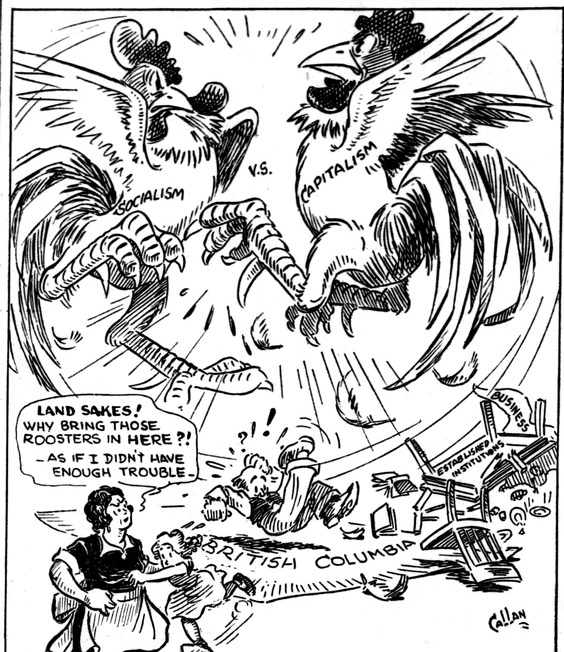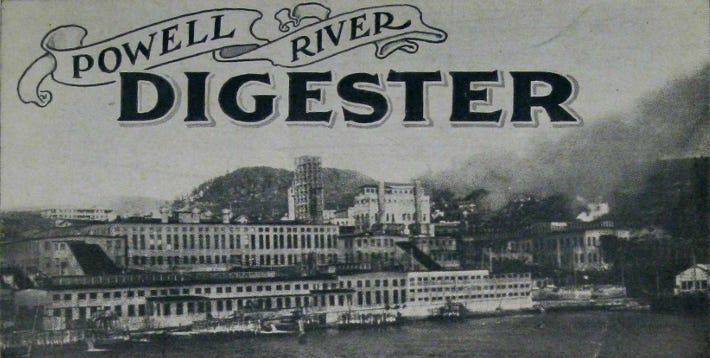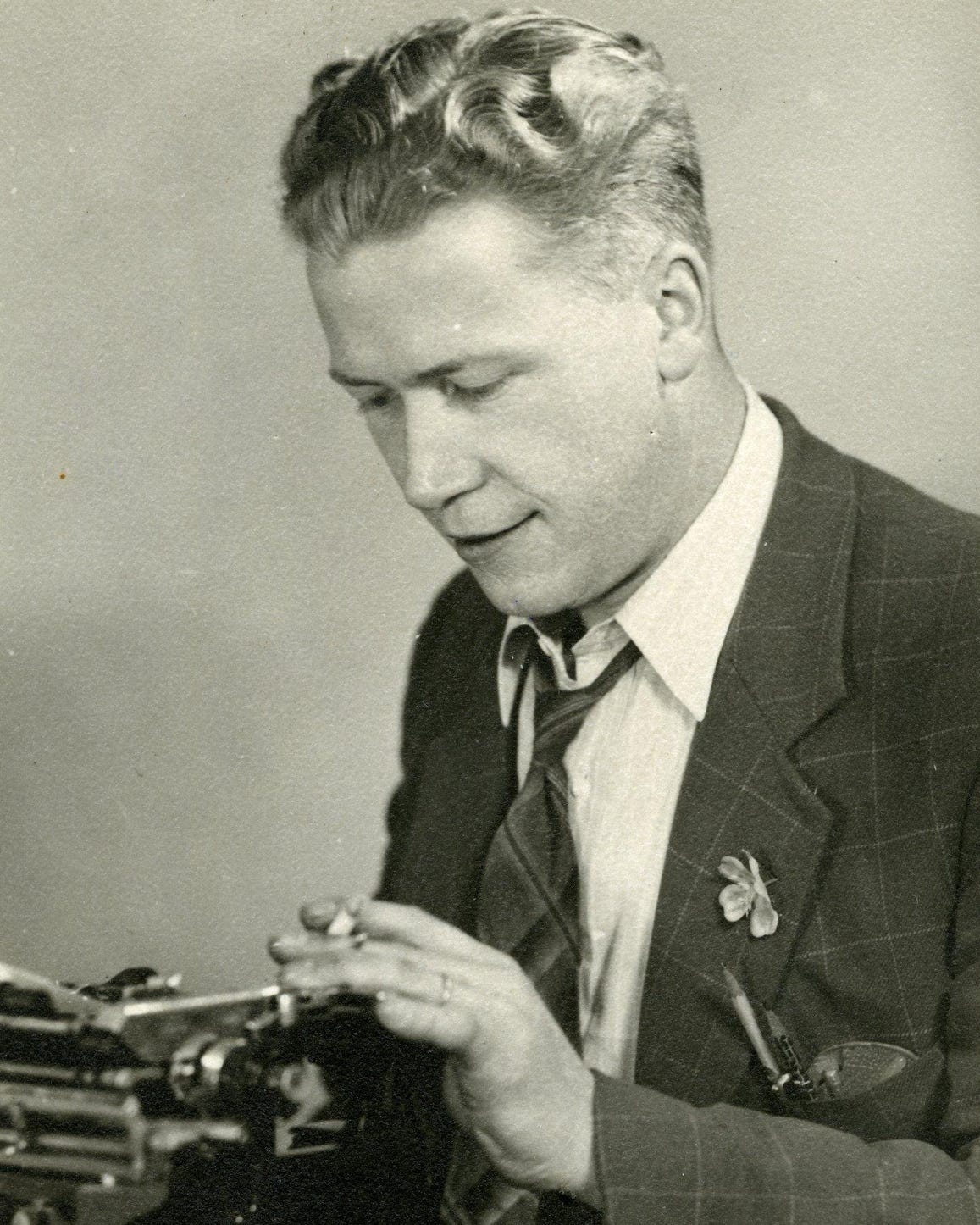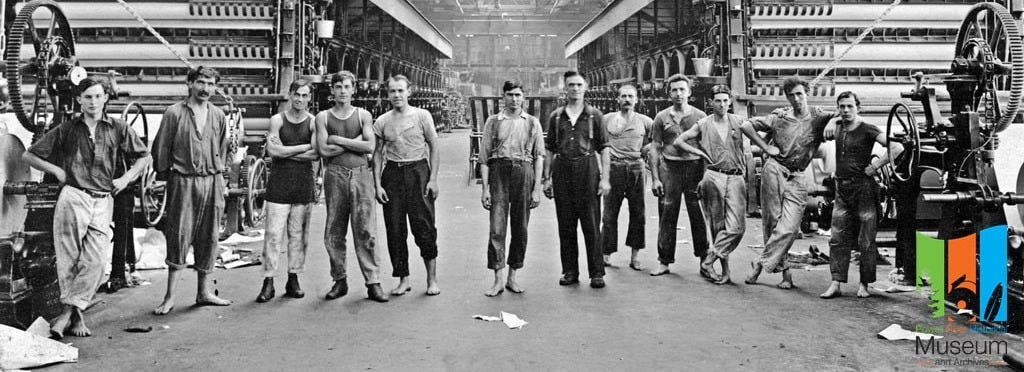What happened to local news?
The slow corporate takeover of journalism in Powell River
Over the past two decades, an average of twenty-five newspapers have closed each year in Canada.
Growing parts of the country no longer have journalists covering their communities. According to a recent study, two and a half million Canadians live in a “state of constant news deprivation,” their region covered by one or no local news outlets. As old-fashioned newspapers and traditional models of journalism collapse, social media, conspiratorial thinking, and corporate propaganda are seeping in to fill the void.
In my town, Powell River, we only have one weekly paper - the Peak. It’s owned by Glacier Media, a news conglomerate that publishes dozens of other papers across BC, including the Daily Oil Bulletin, Oilweek, The Northern Miner, Western Investor, and Real Estate Works.
While Glacier’s publishing record hints at an interest beyond community journalism, its parent company, Madison Venture Corp, makes no bones about its profit-motive.
Madison was founded by Sam Grippo, a reclusive investor who made his fortune during Vancouver’s real estate boom around Expo 86. He founded Glacier Media shortly after, buying up small daily and weekly newspapers across BC, eventually growing it into the province’s second-largest newspaper chain. To this day, Grippo presides over his real estate/media empire as chairman of both Glacier Media and Madison Pacific Properties.
Aside from being owned and managed by a real estate developer, Glacier’s profits depend on the real estate market. As Glacier explains in a recent investor information document:
“Certain operations are tied to both the commercial and residential real estate markets. A downturn in real estate markets, from events such as rising interest rates, economic uncertainty, and government regulations can influence the related revenue generations in the operations.”
My question is, what happened? Why does a real estate developer own our only local newspaper? It wasn’t always this way. Despite being a small town, Powell River once supported several independent papers.
This is a brief history of those papers.
Company Era: Powell River Digester
“Thank God every morning when you get up that you have something to do which must be done, whether you like it or not. Being forced to work, and forced to do your best, will broaden your temperance, self-control, diligence, strength of will, content, and a hundred virtues the idle will never know.”
- from the Powell River Digester, Sept 1922.
Powell River is a mill town. Its first newspaper, the Powell River Digester, was owned and operated by the Powell River Company, itself owned by three American lumber barons.
The first issue was published in 1922, a decade after the mill was built. Even though Powell River’s population was only about two thousand at the time, the paper employed a staff of twenty full-time reporters. For five years, they were the only source for local news in Powell River.
At the time, mill employees worked 13-hour shifts, six days a week, making as little as 22.5 cents per hour. In 1913, they went on strike, demanding an eight-hour workday. The Powell River Company refused to bargain.
In 1921, the workers struck again. In response, the company fired them, brought in strikebreakers, and reduced wages by 16%.
In 1933, at the height of the Great Depression, Powell River elected Ernest Bakewell (a socialist) to the provincial Legislature. In response, the company fired three hundred and fifty employees on suspicion of having voted for Bakewell. On top of losing their jobs, the fired workers were booted from their company owned homes, and their families blacklisted from employment at mills across the province. An untold number got caught up in the purge for simply being foreign or vaguely left-wing.

The Digester didn’t cover any of this. Instead, all you’ll find in the archive from the era are puff pieces about mill management, rosy depictions of community life, and the occasional racist joke.
It wasn’t until 1927 that Powell River got its first independent press, and workers’ grievances were finally given voice in the public record.
Independent Era: Powell River News and The Town Crier
The Powell River News, founded in 1927, was the town’s first independent newspaper. The Town Crier was established shortly after by Al Alsgard, a former mill worker.
By the 1940s, the Town Crier had emerged as the town’s leading daily paper. It moved out of Al’s Church Street attic and into a new office on Cranberry Street. Equipped with a printing press, linotype machine, and bindery, it was a self-sufficient shop that turned out thousands of newspapers daily. By 1945, Al’s business had grown big enough that he bought out his competition, the Powell River News.
Al was ambitious. Aside from his Powell River papers, he founded the Sechelt Peninsula Times and Coast News, covering the lower Sunshine Coast.
Reading through his papers’ archives, I’m struck by the sheer volume of news that used to be published in Powell River. Even though our town's population has doubled since Al’s days, we only have one weekly paper today - a shadow of what we used to have.
Unlike the Digester, which avoided mentioning the class conflict raging across British Columbia, Al’s papers didn’t shy away from complex issues. For example, in 1949, the Powell River News sent one of their journalists on a month-long tour of Saskatchewan to report on Tommy Douglas’ experiment in socialism - the first socialist government in Canada. The half dozen essays from the trip were eventually compiled into a short book, The Saskatchewan Story. It’s an impressive (and expensive) piece of investigative journalism that’s hard to imagine coming out of a Powell River newspaper today.

Beyond quality journalism, Al’s paper was printed locally and gave the community dozens of well-paid, union jobs.
Corporate Era: Southam News
“Look at who has taken control of the newspapers here. Southam News. I mean, Jesus. Southam News wouldn’t know truth if it kicked them up the arse. They’re not in it for news. It’s just part of the thing that makes them some money. And yet most people don’t even realize that Southam News almost has a stranglehold on what is news around here. They don’t just own The Sun and The Province. Here in Powell River we have this Powell River News and the Town Crier. It’s virtually the same goddam newspaper out of the same goddam office but it comes under two different titles. They’re both owned by the Southam News chain.”
- Anne Cameron, local novelist and poet, in a 1987 interview with BC Bookworld.
Powell River’s era of local, independent news ended when Al Alsgard sold his newspapers in 1970. By then, Canada’s four largest newspaper chains controlled a majority of the market, and the remaining independent papers were getting swallowed up.
Eventually, through a series of hard-to-follow mergers and acquisitions, Powell River News and the Town Crier came under the control of Southam News.
By 1980, Southam was Canada’s biggest newspaper conglomerate - over half the country’s newspapers were owned by Southam and its competitor, Thomson Newspapers. On August 27, 1980, a day remembered as “Black Wednesday” in the newspaper industry, Southam and Thomson simultaneously closed their competing daily papers in Montreal, Ottawa, Winnipeg, and Vancouver. Overnight, the already powerful chains now had monopolies on daily news in their respective cities.
In response, the police launched a criminal investigation and raided Southam and Thomson’s offices. Eight charges were filed, accusing the chains of conspiracy, unlawful mergers, monopoly, and destruction of documents. Beyond the investigation, a Royal Commission on Newspapers was formed to investigate the growing concentration of media ownership.
The Commission proposed legislation to “prohibit any future chain from acquiring more than five papers,” “require the break-up of regional monopolies,” and “prohibit purchases where the value of the purchaser’s non-newspaper assets exceeded the value of the newspaper.” Significantly, the last proposal was an attempt to prevent industry (real estate, for example) from controlling the media.
Unfortunately, the Commission’s recommendations were never enacted, and all charges against Southam and Thomson were dropped. Corporations won. As of 2017 (the most recent study I could find), only six percent of Canada’s daily newspapers are independently owned.
We see the result everywhere. Newsrooms are “pale shadows of what they used to be.” Complex issues are flattened, their causes obscured. Paranoia and conspiracy are mainstream. But, an underappreciated impact of the corporate victory, particularly for a union town like Powell River, is that the century-old fight between capitalism and socialism disappeared from the public eye, practically overnight.

Newsless Era: Glacier Media
In 1995, the town got a new paper, the Powell River Peak. Initially distributed for free, it undercut the paid subscription model of the Town Crier, and Powell River News. The old papers, printed locally and run by a full-time staff of union workers, couldn’t compete and folded in 1999. In 2015, Glacier Media bought the Powell River Peak.
Like Southam and Thomson in the 1980s, Glacier Media and Black Press Media (BC’s two biggest newspaper chains) swapped dozens of papers throughout the 2010s, giving each chain monopolies in their respective markets.
Even with a monopoly, Glacier is struggling. As profit margins shrink, they’ve been laying off workers and selling assets. As a result, their papers get worse, less people read them, and they make more cuts. Decades into the spiral, they’re sucking the final drops of blood from their shrivelled papers and dumping the bodies.
In 2020, Glacier closed the historic Vancouver Courier (est. 1908). In 2023, the worst year on record for the loss of local print media in Canada, they closed Alaska Highway News (est. 1943) and Dawson Creek Mirror (est. 1930). Last month, they closed three Metro Vancouver papers - Burnaby Now (est. 1983), New Westminster Record (est. 1981), and Tri-City News (est. 1985) - leaving each community newspaperless.
Unifor, representing Glacier’s most recently laid-off workers, issued the following statement:
“Unifor is deeply concerned about the announcement of Glacier Media’s digital community newspaper closures affecting the jobs of Unifor members at Local 2000, in the communities of Burnaby, New Westminster, Port Moody, Anmore Village, Belcarra Village, Coquitlam and Port Coquitlam, contributing to the troubling news deserts in Metro Vancouver.”
To be clear, Glacier Media may be a vampiric machine extracting wealth from a dying industry, but this is not an attack on their workers. Operating under corporate restraints and slashed budgets, they're providing an essential service to the communities they serve.
Each time Glacier shuts a paper down, they’re leaving another community without access to vital information.
Conclusion
“Freedom of the press is not a right of property owners. It is a right of the people.”
- from the final report of the Royal Commission on Newspapers
A century ago, Powell River mill workers fought for fair wages, union recognition, and reasonable hours. They knew the boss’s newspaper wasn’t telling their side of the story.
So, in the thick of the Great Depression, they founded their own paper. Nurtured by the community, it grew into a trusted daily that served the town for nearly seventy years.
Things aren’t so different now. We’re back to having one newspaper, owned by industry. Only real estate has replaced forestry.
Over the past decade, property values across the province have exploded by more than two hundred percent, making investors and corporate landlords like Sam Grippo (the owner of Glacier Media) incredibly rich. Meanwhile, the rest of us are overextended, crushed beneath rent and mortgages that have grown out of all proportion to our stagnant wages.
Why aren’t our papers telling us about tenants’ unions, rent strikes, or other effective ways communities have responded to the crisis? Why aren’t they covering the real estate industry’s ongoing attack against Indigenous rights? Why don't they expose the funders behind the real estate propagandist who just became our member of Parliament?
It’s time to start our own independent local paper, again.
Thanks to Bob Hackett, retired professor of communication and member of our local qathet Climate Alliance. His insights and feedback helped inform this article but the opinions expressed are my own











Excellent article, Craig! We may have a little publication again one day...
Thanks for this & all your work on our local history. Very valuable!